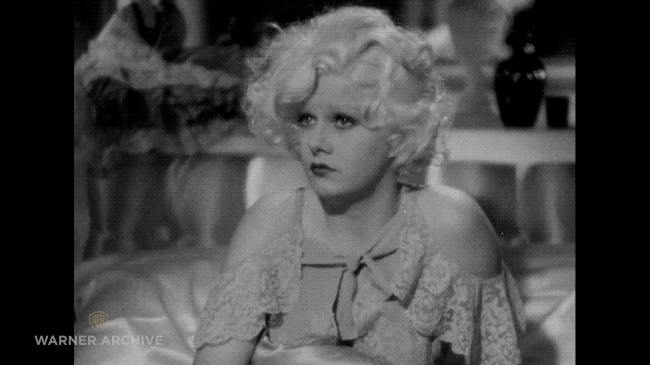When Paula’s Cinema Club disses a movie, we pay attention.
So when she wrote a less-than-glowing review of The Constant Nymph (1943), we couldn’t wait to see this film. It can’t be that bad, we thought.
It is.
Here’s the basic premise: Charles Boyer plays a narcissistic Swiss musician who marries Alexis Smith, the wealthy niece of a long-time friend and mentor. However, Smith’s 14 year-old cousin (Joan Fontaine), is also in love with Boyer. When Boyer’s marriage to Smith starts to derail, he realizes he may be in love with Fontaine after all.
Yes, he thinks he may be in love with a 14 year-old girl.
Now, Fontaine was 26 years old when she made this movie, and maybe filmmakers counted on audiences being cognizant of Fontaine’s real age. But that doesn’t eliminate the Creep Factor.
As an aside, we don’t mind Fontaine as a fresh-faced 14 year-old. Sometimes her youthfulness feels a bit forced, but she’s not without charm. The film also has Tony Gaudio‘s gorgeous cinematography and a terrific supporting cast, including May Whitty and Peter Lorre.
But we (as in, yours truly) have two issues with this story: (1) The wife, who did nothing wrong, is cast as the villain; and (2) The Boyer-Fontaine relationship.

Alexis Smith (second from left) is Very Nervous about Fontaine. Image: TCM
The Constant Nymph is based on the 1924 novel by Margaret Kennedy. This novel was a scandalous sensation when first published; it’s credited with starting the Bohemian literary genre.
The movie reflects the novel’s bohemian philosophy. Fontaine’s aging father lives with his daughters, most of whom do not have the same mother. The woman he lives with at the start of the film is disliked by the daughters and, after the father dies, the companion flees with a younger man.
Meanwhile, Boyer and the wealthy Smith conduct a fast romance, and they move to her family’s home in London. It is Smith’s father (Charles Coburn) who has assumed financial responsibility for Fontaine and her younger sister.
But when Fontaine runs away from school and shows up, unannounced, at Smith’s London home, there’s Trouble.
Smith, aware of Fontaine’s devotion to Boyer, becomes a coiled serpent, scrutinizing interactions between Boyer and Fontaine. “There’s some kind of language between them that only they understand,” she says. “I feel like a stranger in my own house.”
She’s become the Bad Guy in this, even though Boyer said he loved her and willingly married her. Not only that, it’s her family bankrolling his lifestyle – and Fontaine’s, too.
As for Boyer, he wearies of Smith’s promptings to get off his backside and resume performing. (Fontaine’s character never makes such demands.) This further alienates Smith who, for whatever reason, is still in love with Boyer.
She and Boyer argue about Fontaine, and Smith obliquely refers to the, uh, uncomfortable relationship: “I felt, no matter what she was, you – you, at least, were decent.”
Smith’s character knows, deep down, she never had a chance.
Of course Boyer’s character was going to fall for Fontaine.
For one thing, he’s stroppy. When he reads a review that compares him to a mechanic, he throws away his compositions in a fit of temper.
He frequently digs for compliments because his favourite topic of conversation is himself. Not only that, he has to be coddled and coaxed into performing – never pushed – and he’s proud of his sophisticated music. (It’s “very modern,” as Fontaine puts it.)
Fontaine’s character thinks Boyer is a Genius. She Understands his music and motivation, and she reflects these to back him as though she’s just discovered his brilliance.
Because her character doesn’t have a towering intellect, or much life experience, Fontaine becomes a mirror of Boyer himself.
So what’s a narcissist to do? It’s impossible for him not to fall in love with himself.
We cannot recommend you see The Constant Nymph. In fact, please regard this review as us standing in the middle of the road, waving at you to turn around and go back.
Notes:
- Read the New York Times’ (positive) 1943 review HERE.
- Read the TCM overview HERE.
The Constant Nymph: starring Charles Boyer, Joan Fontaine, Brenda Marshall. Directed by Edmund Goulding. Written by Kathryn Scola. Warner Bros.-First National Pictures Inc., 1943, B&W, 112 mins.












I feel vindicated in that someone else saw what I see in this trainwreck of a movie. Thank you!
LikeLiked by 1 person
Haha! I’ve got your back on this one, girlfriend.
LikeLiked by 1 person
This sounds like it could be the first Fontaine movie I don’t actually want to watch. Or, y’know, maybe I should watch it, just to confirm its stinker status. It does seem, from your very funny description, to be truly dreffle.
LikeLiked by 1 person
Joan Fontaine is charming here, and she looks really cute. If you’re a completist, you should see it – if only to tick off your list.
Thank you for the word “dreffle”. It’s a terrific word.
LikeLike
Hah, it’s funny because I put this on my watchlist, then I saw that Joan Fontaine was going to be playing a teenager ( a la June Allyson style) that I “noped” outta there very quickly.
I’m glad I made the decision.
LikeLiked by 1 person
Joan Fontaine is able to play an innocent teen with charm, although it does wear a bit thin at times. If you do decide to see it, however, I’d be curious to know your thoughts.
LikeLiked by 1 person
Hmmmm, Maybe It’ll be my next review! Yeah, you know what, I think I’ll watch it now.
LikeLike
Great analysis! I actually didn’t spot the creep factor (probably because I didn’t buy for a minute that Fontaine was 14) or the narcissistic factor, which is odd, since I am very sensitive to narcissism (grew up with a narcissist) but I did catch on to the arrogance and condensation of Boyer’s character. Definitely not a film I care to see more than once.
Tam
The Dream Book Blog
http://thedreambook.wordpress.com/
LikeLiked by 1 person
Oh yes – Boyer’s character certainly has arrogance and condescension. I think this is my least fave role of his.
I’m with you. I don’t think I’ll be seeing this one again, either.
LikeLike
I’m not fond of this movie either. However, it does features a beautiful score from Erich Wolfgang Korngold!
LikeLiked by 1 person
That’s true. It does have a wonderful score.
LikeLike
Oh, my! I agree, the script is filled with creepiness. “14-year old” Joan Fontaine, and an older man falling in love with her? I guess I have to take a look just to assure myself that such a film can exist. Bohemian is definitely a polite word for all this. Great review.
LikeLiked by 1 person
Haha! Yes, “Bohemian” in this case is a euphemism, all right. The film is beautiful, and the sets and costumes are worth it. I just felt I had to warn folks about the nature of the Fontaine-Boyer relationship…
LikeLiked by 1 person
Hey Ruthaaaaaay! I read your review and was shaken to the core that you didn’t like the movie. Would you mind if I offered a rebuttal to you re: “The Constant Nymph”? I loved this movie when I saw it at the TCMFF and was uncontrollably sobbing. If you allow me maybe a month, I’d like to get my thoughts together for you and your readers and explain why this film unexpectedly moved me. I’ll throw this out to Paula too.
LikeLiked by 1 person
You bet! Please do! If you post on your site, I will re-blog.
LikeLike
I’ll start working on it. 🙂
LikeLike
I haven’t watched the movie but your review has made me curious, although I have no doubt your review is spot on, so I will stay clear!
LikeLiked by 1 person
Many people love this film, but I couldn’t – in good conscience – recommend it.
LikeLike